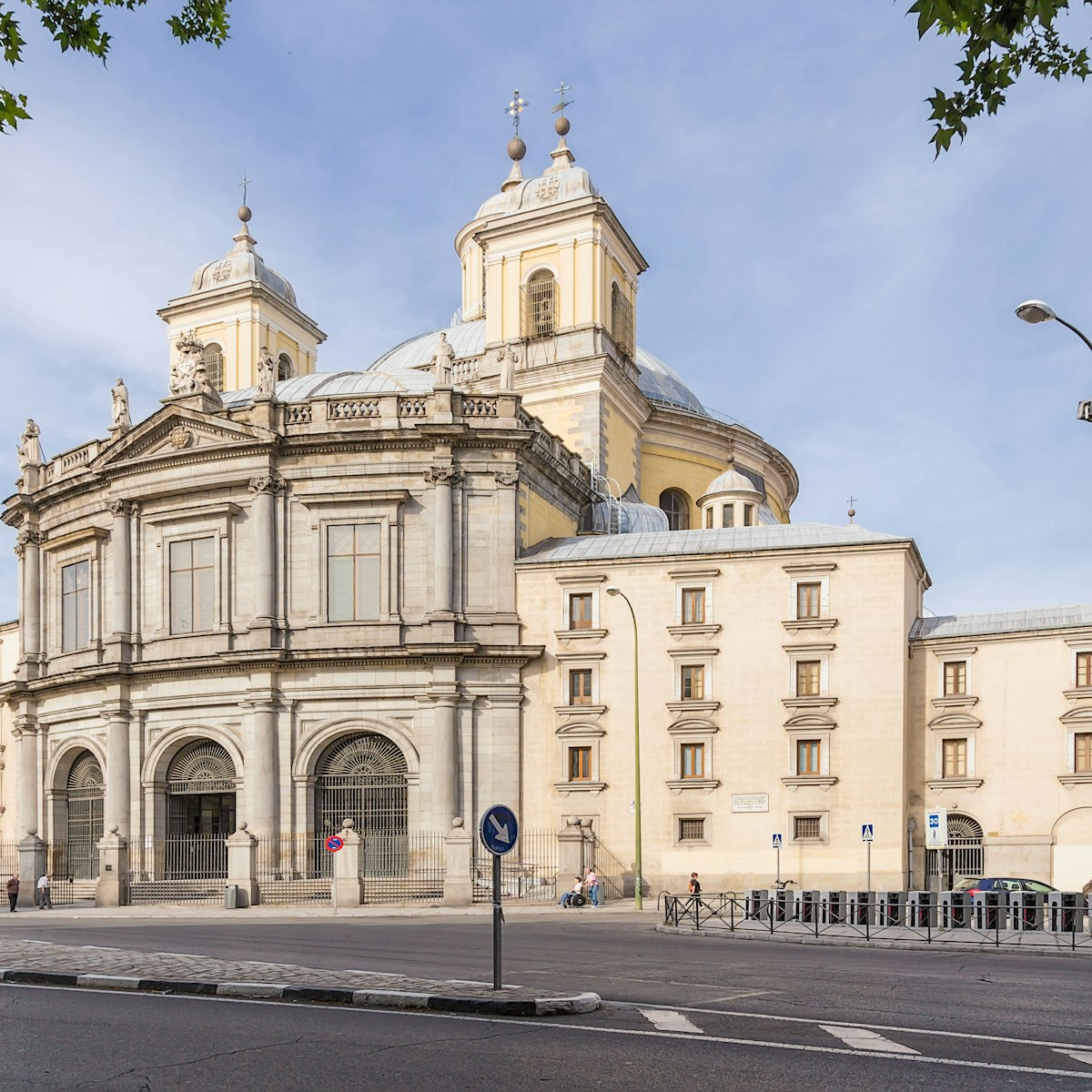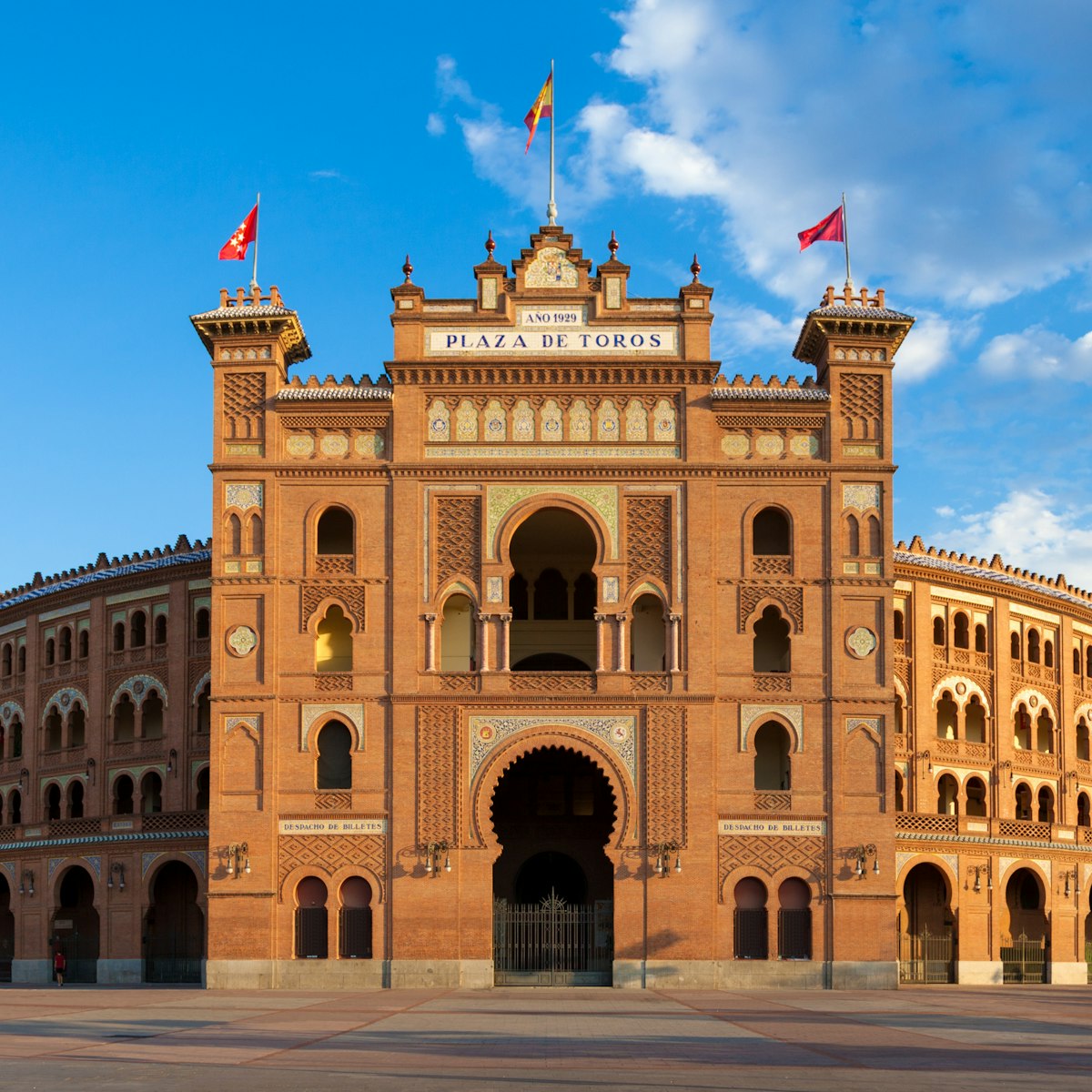Paris has Notre Dame and Rome has St Peter’s Basilica. In fact, almost every European city of stature has its signature cathedral, a standout monument to a glorious Christian past. Not Madrid. Although the exterior of the Catedral de Nuestra Señora de la Almudena sits in harmony with the adjacent Palacio Real, Madrid’s cathedral is cavernous and largely charmless within; its colourful, modern ceilings do little to make up for the lack of old-world gravitas that so distinguishes great cathedrals.
Carlos I first proposed building a cathedral here back in 1518, but construction didn’t actually begin until 1879. It was finally finished in 1992 and its pristine, bright-white neo-Gothic interior holds no pride of place in the affections of madrileños.
It’s possible to climb to the cathedral’s summit, which has fine views. En route you climb up through the cathedral’s museum; follow the signs to the Museo de la Catedral y Cúpola (www.museocatedral.archimadrid.es) on the northern facade, opposite Palacio Real.
Just around the corner on Calle Mayor, the low-lying ruins of Santa María de la Almudena are all that remain of Madrid’s first church, which was built on the site of Mayrit’s Great Mosque when the Christians arrived in the 11th century.
And just down the hill beneath the cathedral’s southern wall on Calle Mayor is the neo-Romanesque crypt, with more than 400 columns, 20 chapels and fine stained-glass windows.







